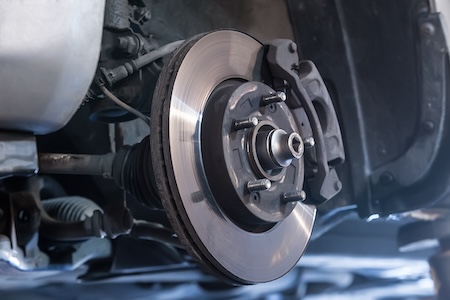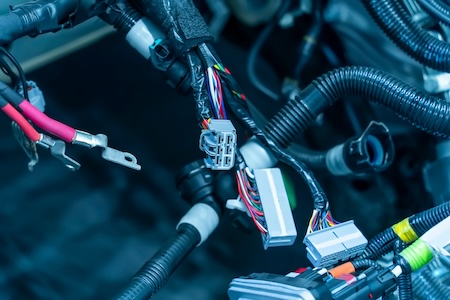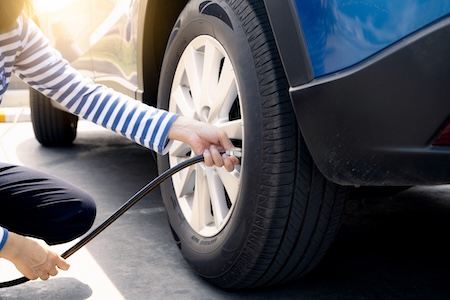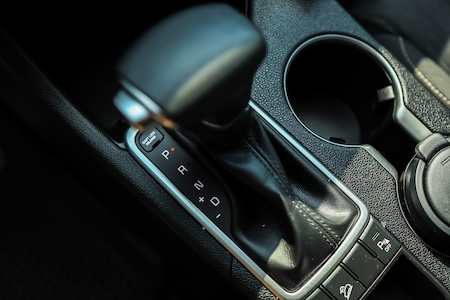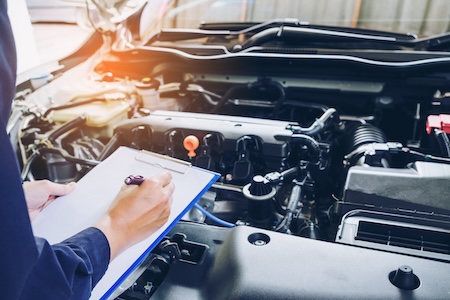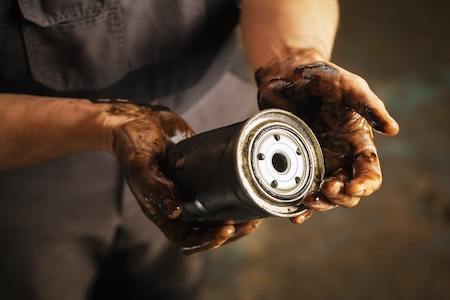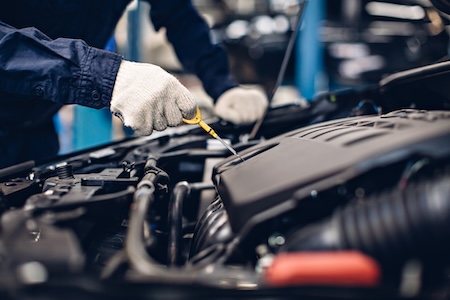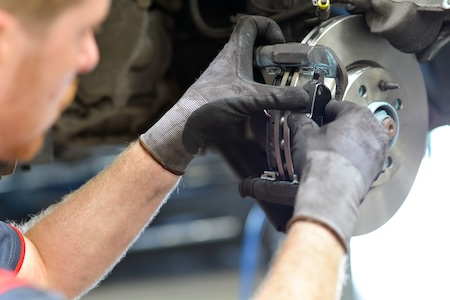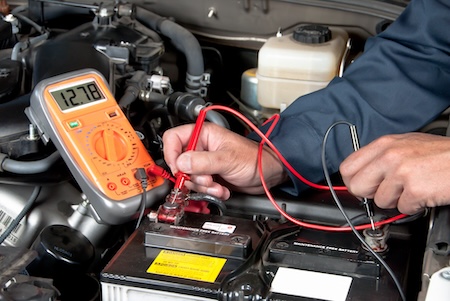It’s embarrassing. It’s worrisome. It’s painful. It’s frustrating.
No matter what words you use to describe it, when your car brakes are acting up, you’ll know it.
While some people ignore it, (doesn’t that drive you crazy?) that’s not your style. You want to get to the heart of the problem. You want those brakes fixed fast.
But what does it really mean? Did you know different brake noises mean different things? It doesn’t just happen – it’s designed that way.
Because when you’re in need of noisy brake repairs, it’s easier if you know what the problem is from the start. That way you can get to the heart of the issue, get the problem solved, and get back on the road.
Why Did Manufacturers Design Cars to Make Different Noises when Brakes are Having Problems?
Wouldn’t it be great if manufacturers crafted a car to alert you to problems before they escalated in size? They did! As technicians dove deep into the world of car manufacturing, they discovered ways to create a well-crafted vehicle with warning signals … if you pay attention.
Take the brakes as an example. Each piece is joined and comes together in such a way as it starts to make noises if it loses its “connection.” By making distinct sounds like squealing or grinding, cars alert drivers early on if there’s an issue with the brakes. This early warning can prevent more serious damage to the braking system and reduce the risk of brake failure while driving.
These noises grab the driver’s attention. You’ve heard them; they’re annoying at best. For those who pay attention, it serves as a warning, keeping them aware of their vehicle’s braking system condition and reminding them to check it regularly. Ultimately, they provide audible warnings that serve as safety precautions to prevent accidents. (That grinding noise you occasionally hear indicates severely worn brake pads, giving you a chance to fix the issue quickly, preventing the brakes from failing unexpectedly while you’re out driving.)
Some of it is also regulated, designed to make the road a safer place. It’s give and take between rule makers and manufacturers, creating both safety and customer satisfaction.
The Main Brake Noises You Should Pay Attention To
Some might say car brakes make noises all day, every day. That may very well be true. Every time you push on the brake pedal, you might hear a variety of noises. Some become commonplace – that’s your vehicle in action.
Those aren’t the brake noises we’re talking about.
Instead, we’re more concerned with the noises that “suddenly appear”.
Squealing or Squeaking
Squealing or squeaking noises typically indicate that the brake pads have worn down to a level where they need to be replaced. Brake pads have built-in wear indicators that emit a high-pitched squeal when they become too thin. Ignoring these warning sounds can lead to more serious problems and potential safety hazards.
When you hear squealing or squeaking noises from your brakes, it means that the brake pads are reaching the end of their lifespan and may soon become ineffective at stopping your vehicle safely. Continuing to drive with worn brake pads can lead to damage to other brake components, such as the brake rotors, which can be more expensive to repair or replace.
It’s essential to address squealing or squeaking brakes as soon as possible. While some minor squealing may not immediately indicate a critical issue, it’s still a signal that your brake pads are wearing down and need attention. As soon as you notice these noises, it’s a good idea to have your brakes inspected by a qualified mechanic. They can determine the extent of the wear on your brake pads and recommend whether they need to be replaced or if there are any other underlying issues with your brake system that need to be addressed.
Grinding or Growling
Grinding or growling typically indicates severe wear or damage to the brake pads and possibly other brake components. It’s important to watch for these sounds because they often suggest that your brake pads have worn down completely, allowing the metal backing plate of the brake pad to grind against the brake rotor. Ignoring these warning signs can lead to further damage to your vehicle’s brake system and compromise your safety on the road.
When you hear grinding or growling noises from your brakes, it means that your brake pads are no longer providing adequate friction to stop your vehicle effectively. Instead, the metal-on-metal contact between the brake pad backing plate and the rotor is causing significant damage to both components. This can result in increased stopping distances, reduced braking performance, and potential loss of control of the vehicle in emergency braking situations.
Grinding or growling noises from your brakes should be addressed immediately. Continuing to drive with worn brake pads can lead to further damage to the brake rotors, calipers, and other brake components, resulting in more costly repairs. Additionally, driving with compromised brakes poses a serious safety risk to you, your passengers, and others on the road.
Clicking or Clunking
Clicking or clunking noises typically indicate loose brake components or worn-out suspension parts, both of which can compromise the safety and performance of your vehicle. It’s essential to watch for these sounds because they can signify underlying issues that need to be addressed promptly to prevent further damage and ensure your safety on the road.
When you hear clicking or clunking noises from your brakes, it means that there may be loose or damaged components within the brake system or the suspension system. Loose brake pads, caliper bolts, or brake hardware can cause clicking or clunking sounds when the brakes are applied or released. Similarly, worn-out suspension parts such as ball joints, control arms, or sway bar links can also produce these noises, especially when driving over bumps or uneven surfaces.
Clicking or clunking noises from your brakes should not be ignored, as they can indicate potential safety hazards. Loose or damaged brake components can affect the effectiveness of your brakes, leading to reduced stopping power and longer braking distances. Worn-out suspension parts can affect the stability and handling of your vehicle, increasing the risk of loss of control, especially in emergency situations.
Get Your Noisy Brakes Fixed Today
Paying attention to the sounds your car’s brakes make is crucial for your safety on the road. Whether it’s squealing, grinding, or clicking, these noises are not just annoyances—they’re your car’s way of telling you that something may be wrong. By addressing brake noises promptly and getting them inspected by a qualified mechanic, you can prevent further damage to your vehicle and ensure that your brakes are in top condition.
Remember, your brakes are one of the most critical safety features of your car, and regular maintenance is essential to keep them functioning properly. Don’t wait until it’s too late—take action at the first sign of trouble. By staying proactive and taking care of your brakes, you can enjoy peace of mind knowing that you’re driving safely and responsibly.

